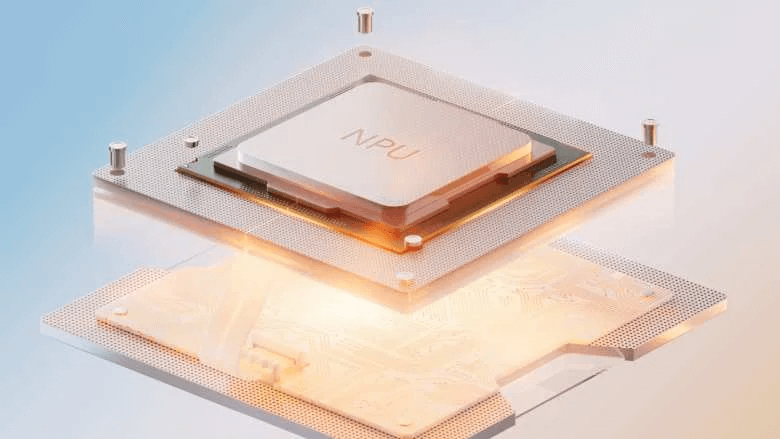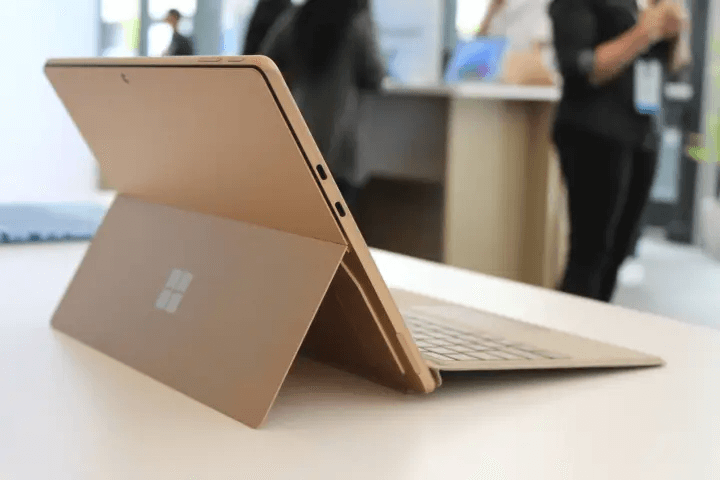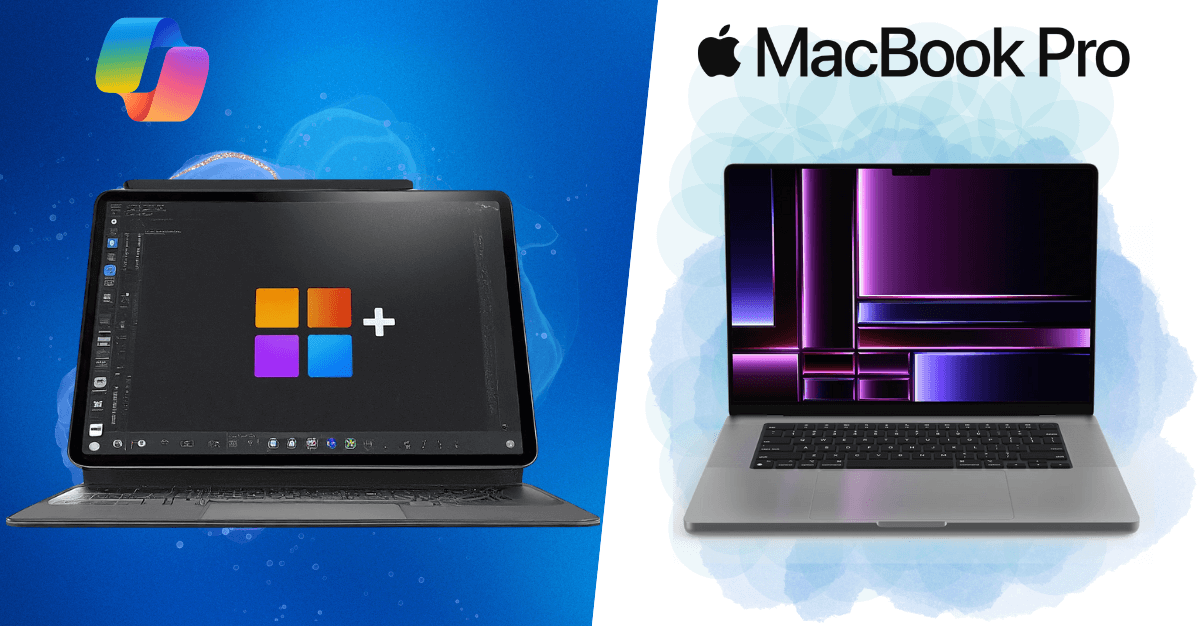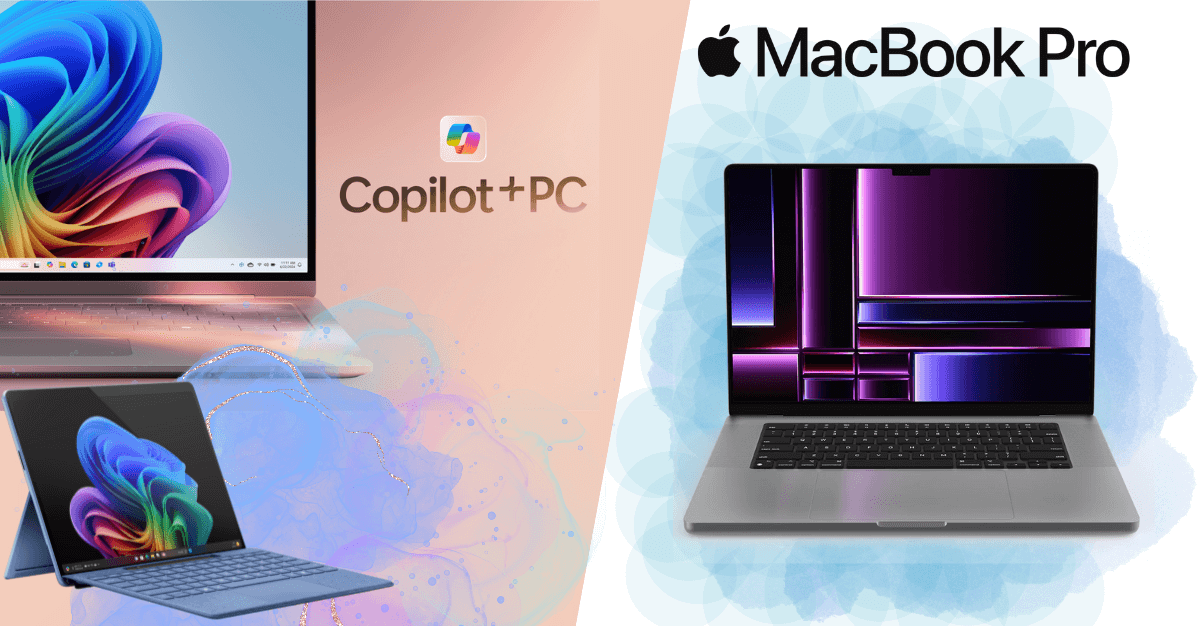MacBooks have indeed enjoyed a remarkable journey.
For four years, Apple’s Silicon ARM chips have outperformed Intel, AMD, Microsoft, and every other laptop manufacturer. During this time, while PC sales were plummeting, Mac sales remained robust.
However, Apple’s dominance in the realm of sleek, portable, powerful, and long-lasting laptops is now facing a formidable challenge. With the unveiling of the new Copilot+ devices today, the competitive landscape has been significantly altered. Having had a glimpse behind the scenes, it’s clear: the future holds intriguing developments.
The Rise of Apple Silicon
Apple’s decision to transition from Intel processors to ARM-based Apple Silicon was a game-changer. The M1 chip, followed by the M1 Pro, M1 Max, and the recent M2 and M3, have outperformed competitors, offering unmatched power efficiency and battery life. This leap allowed MacBooks to operate at higher performance levels without the need for cooling fans, a feat that seemed out of reach for other laptop manufacturers.
Market Performance and Consumer Trust
MacBook’s reputation for reliability, design, and ecosystem integration further cemented its market position. Sales figures and market analysis from the past four years reveal a steady increase in MacBook adoption, even as overall PC sales declined. Consumers trusted MacBooks for their professional and creative needs, making Apple’s laptops a staple in various industries.
Performance Against the M3
Let’s get straight to the point: The new lineup of Copilot+ PCs undeniably possesses the capabilities to rival the MacBook Air M3. Qualcomm has spent a considerable portion of this year making bold assertions about its new Snapdragon X Elite chips, which may have initially been met with skepticism. However, the reality is now apparent. I’ve had firsthand experience with the actual laptops that will soon be available for purchase, validating those claims.

Yusuf Mehdi, executive vice president at Microsoft, confidently stated, “Firstly, they will surpass all other PCs on the market in terms of speed and performance by a significant margin.” He specifically highlighted Copilot+ PCs, emphasizing their superiority over even the fastest PCs currently available, such as the MacBook Air with an M3 processor. According to Mehdi, these PCs will outshine the MacBook Air by an impressive 50% on the Cinebench benchmark.
In the presence of a select group of media, I witnessed these claims being put to the test. On display was the new 15-inch Surface Laptop undergoing a series of benchmarks alongside the Apple M3 MacBook Air 15-inch.
Since the introduction of the M1 MacBook Air, the exceptional performance per watt of these chips has reverberated throughout the PC market. Initially, the capabilities of the M1 in a fanless laptop seemed improbable. However, Apple has consistently pushed the boundaries of performance, making it challenging to envision Windows laptops catching up. Yet, rest assured—these Copilot+ PCs are the genuine article.
Across various benchmarks, these new Copilot+ laptops have demonstrated approximately 16% faster multithreaded performance and a remarkable 46% improvement in sustained performance compared to the 15-inch MacBook Air M3. This performance superiority was evident in applications like Cinebench R24, Handbrake, Photoshop, and Geekbench 6. For instance, in Geekbench 6, the new Surface Laptop achieved a multi-core score of 14,000, while the MacBook Air 15 M3 scored around 12,000, resulting in a 16% disparity.
Microsoft asserts that due to stricter standards, there will be minimal variance in performance between models compared to previous iterations. This ensures that these impressive performance metrics are consistent across models, whether opting for a Dell XPS 13, Lenovo Yoga Slim 7x, or the latest Surface Laptop.
The successful integration of these advancements required a comprehensive overhaul of Windows to ensure ARM compatibility, encompassing a new kernel, compiler, and schedulers. The entire system is now optimized for maximizing the CPU performance of ARM chips—a hurdle that had previously hindered progress. Additionally, native app support has been significantly enhanced by Microsoft leading up to this launch.
Battery Life: A New Challenger Emerges

One of the MacBook’s strongest selling points has been its exceptional battery life. Can the new Copilot+ laptops compete in this critical area?
Microsoft’s Bold Claims
Microsoft claims that the new Surface Laptop, equipped with Copilot+ technology, offers up to 16 hours of web browsing and 20 hours of local video playback. These figures, if accurate, would put these laptops on par with, or even ahead of, the MacBook Air M3.
Efficiency Gains from ARM Architecture
The efficiency gains from ARM architecture have been a significant factor in extending battery life. Microsoft’s focus on minimizing standby power consumption and optimizing power management for ARM chips has paid off. Standby power, a major contributor to perceived battery life, has been enhanced, ensuring that these laptops remain responsive and ready to go, even after extended periods of inactivity.
Neural Processing Units and Battery Impact
The integration of advanced neural processing units (NPUs) allows for persistent AI models to run in the background without draining the battery. These NPUs, capable of up to 40 TOPS, ensure that AI-driven features and applications can operate continuously without compromising battery life.
The War’s Only Just Begun
While the Copilot+ devices present a formidable challenge to MacBooks, the battle is far from over. Several factors will influence the future dynamics of this competition.
To corroborate these assertions, extensive independent testing remains imperative. Despite the insights gleaned thus far, numerous unanswered questions persist. For instance, the discussion thus far has overlooked single-core performance, an area where the MacBook Air M3 still maintains an advantage. Furthermore, the MacBook Pro presents another challenge, with its distinct graphics capabilities setting it apart from the current array of Copilot+ laptops.
It’s worth noting that these Copilot+ laptops represent just the initial phase. In terms of their dimensions and design, many do not fully exploit the efficiency of these chips. Analogous to the inaugural generation of M1 devices, which repurposed existing Mac chassis with upgraded internals, it may take until the subsequent generation of Copilot+ laptops to witness a design overhaul with significantly reduced profiles. None of the current Copilot+ laptops match the slimness of the MacBook Air, nor do they offer fanless operation.
Nevertheless, a laptop’s appeal extends beyond mere performance and battery life. MacBooks excel in areas where Windows laptops often falter, such as superior speakers, impeccable build quality, and near-perfect keyboards and trackpads.
Yet, this underscores the strength of the Windows ecosystem. It accommodates a diverse range of laptops, some aspiring to emulate the quality of MacBooks, others exploring experimental innovations or novel value propositions, and still others prioritizing affordability without compromising functionality.
A Diverse Range of Competitors
The new Copilot+ lineup includes a variety of models from different manufacturers, such as Dell, Lenovo, and Microsoft’s Surface laptops. This diversity ensures that consumers have multiple options, each catering to various needs and preferences, whether for professional use, creative work, or general productivity.
The Implications for Apple
Apple will need to respond to this new competition. The company’s ability to innovate and adapt will be tested as it faces pressure from devices that match and potentially exceed the performance and battery life of its latest MacBook Air.
Consumer Benefits and Market Evolution
For consumers, this increased competition is a boon. It means more choices, potentially lower prices, and continuous advancements in technology. The days of a single company dominating the market may be over, leading to a more dynamic and consumer-friendly landscape.
Specifications and Comparisons
To provide a clearer picture of how the new Copilot+ devices stack up against the MacBook Air M3, let’s look at some detailed specifications and comparisons.
| Feature | MacBook Air M3 | Surface Laptop (Copilot+) |
| Processor | Apple M3 | Snapdragon X Elite |
| Multithreaded Performance | 12,000 (Geekbench 6) | 14,000 (Geekbench 6) |
| Battery Life (Web) | 15 hours | 16 hours |
| Battery Life (Video) | 18 hours | 20 hours |
| Weight | 2.8 pounds | 3.0 pounds |
| Operating System | macOS | Windows 11 |

Conclusion
The introduction of Copilot+ devices marks a significant milestone in the laptop market. The long-standing dominance of MacBooks, bolstered by Apple Silicon, is being seriously challenged for the first time in years. With superior performance, impressive battery life, and a diverse range of options, Copilot+ laptops are set to redefine consumer expectations and drive further innovation in the industry. The MacBook monopoly may be ending, but the competition is just

Meet the talented team behind mrustimes.com! Our expert news article writers boast diverse journalistic backgrounds, honing their skills in capturing compelling stories with precision. Armed with extensive experience and a deep understanding of current events, they deliver high-quality content that informs, educates, and entertains our readers, solidifying our reputation as a trusted source in the industry of news blog websites.







